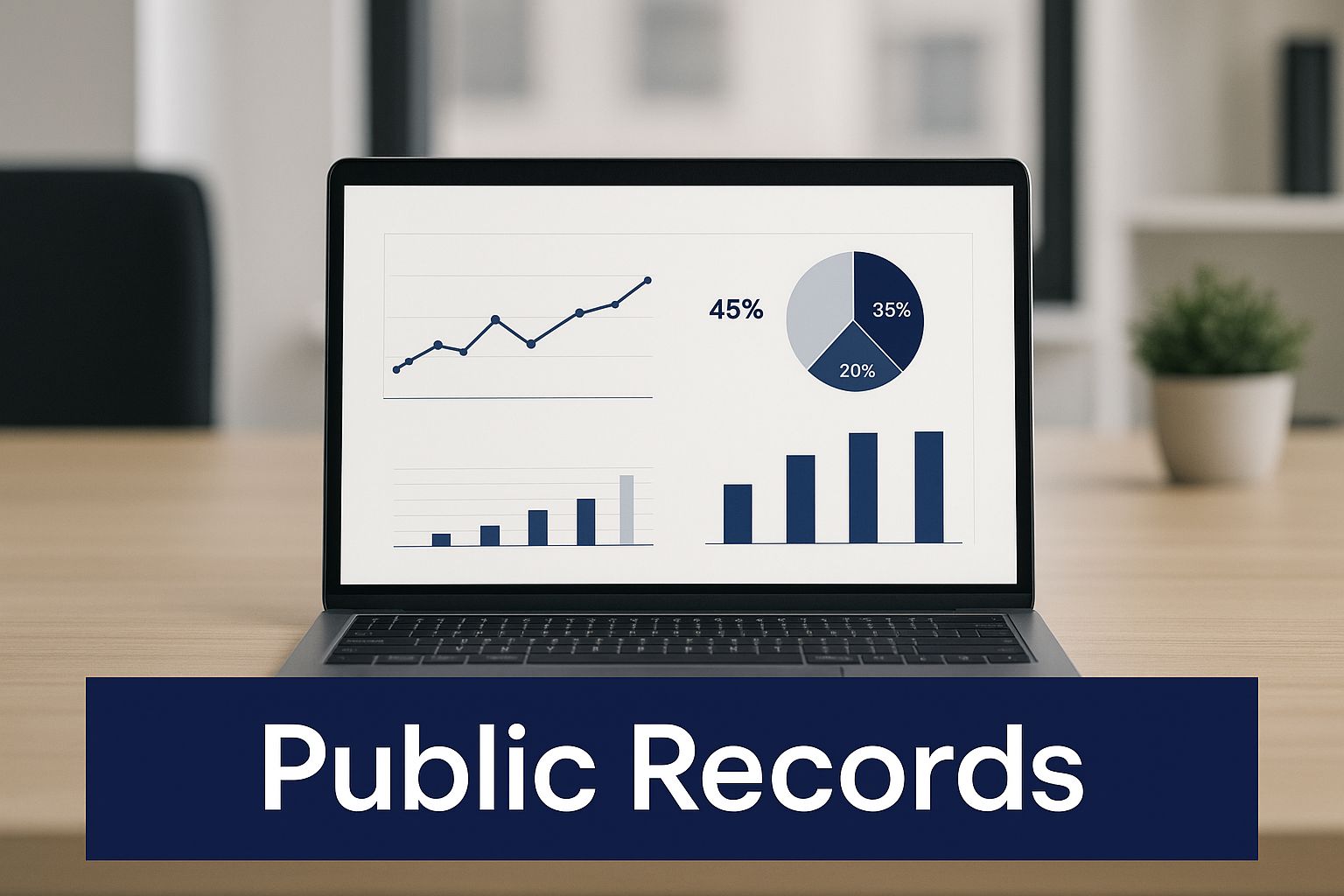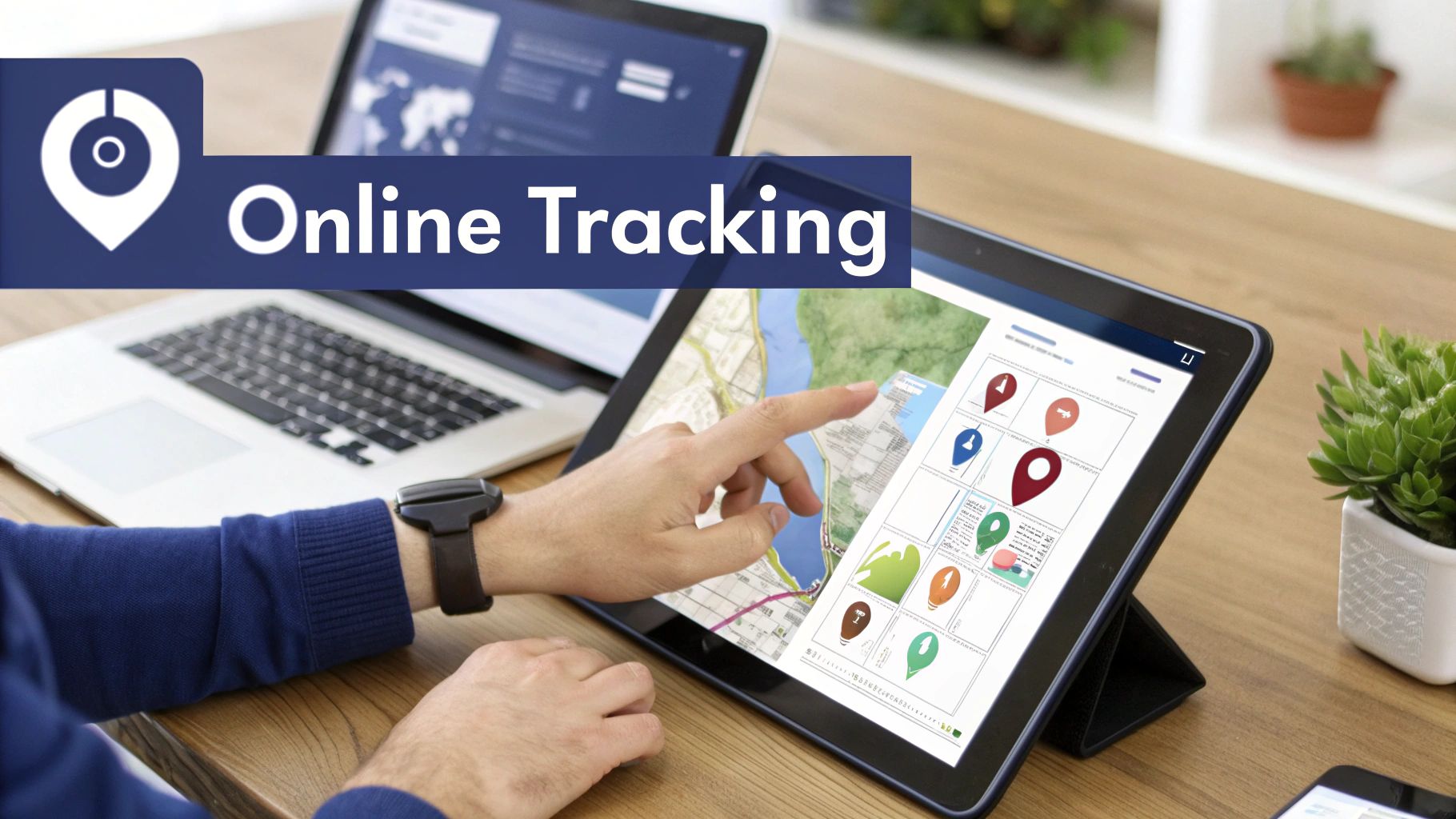Tracing Debtors: The Essential Playbook for UK Businesses
- Sentry Private Investigators

- May 24, 2025
- 11 min read
Updated: Jul 28, 2025
When Debtors Disappear: Understanding the UK Landscape

Tracing debtors is crucial for UK businesses, especially in today's economy. Traditional contact methods like phone calls and letters are becoming less effective. One reason is debtor flight, where individuals move, often without a forwarding address. Imagine trying to recover a debt from someone who has moved several times in a year. This highlights the growing need for specialised tracing techniques.
The Evolving Nature of Debtor Mobility
The difficulty in tracing debtors isn't just a story. The UK faces a significant debt recovery challenge due to high debtor mobility. This makes it much harder for creditors to get their money back. Sophisticated debtor tracing techniques are essential to address this. These techniques often use data analytics, advanced technology, and comply with legal and ethical guidelines, helping creditors locate debtors despite frequent moves.
Debtor tracing services often use data from UK Credit Reference Agencies. These agencies offer vital information that, combined with other sources, can accurately identify a debtor's current address in about 99% of cases. Learn more about UK debtor mobility and effective debt recovery through tracing here. Finding the right tracing agent is key to success.
Corporate vs. Individual Debtor Tracing
Tracing debtors is particularly challenging with corporations. Businesses can be complex, with intricate structures and multiple locations. This requires specialised knowledge and recovery strategies. This necessitates a different approach than tracing individual debtors. Businesses facing this should explore corporate debtor tracing options. Learn more about corporate debtor tracing. You might also be interested in how to master people tracing.
This complex situation demands a change in how we approach debt recovery. Traditional methods aren't keeping up with debtor behaviour. Failing to adapt can have serious consequences, impacting immediate cash flow and long-term business sustainability.
The True Cost of Vanishing Debts to Your Business
Unpaid debts are more than just numbers on a spreadsheet. They represent a real drain on your business's resources and potential. The immediate financial hit is obvious, but the consequences reach much further. Tracing debtors isn't just about getting your money back – it's about protecting the health and stability of your entire enterprise.
The Domino Effect of Unrecovered Funds
Unpaid debts can disrupt your cash flow, creating a chain reaction. Late payments can prevent you from investing in important growth initiatives, like expanding your product line or hiring essential staff. Outstanding debts can also damage your relationships with suppliers. They may hesitate to offer you credit or favourable terms if your payment history is spotty. This can restrict your operations and increase your costs.
Workforce Instability and Lost Opportunities
The impact of unpaid debts extends to your workforce. Cash flow problems can lead to delayed salaries or even job cuts, creating instability and damaging employee morale. This makes it harder to attract and retain talent, putting your business at a competitive disadvantage. The time and resources spent chasing invoices could be used for more profitable activities, such as developing new markets or improving customer service. These lost opportunities are a significant hidden cost of unpaid debts.
Economic Turbulence and Debt Recovery Challenges
The current economic climate in the UK makes debt recovery even more difficult. The increase in government debt, at its highest level since the early 1960s, has put additional financial pressure on businesses. You can find more detailed statistics at Statista. This challenging economic backdrop emphasises the growing importance of efficient debtor tracing methods for sustainable business operation. Advanced techniques are becoming vital, not just for collections, but for navigating this complex landscape and ensuring business survival.
Turning Debt Recovery into a Competitive Advantage
Businesses that prioritise and excel at debt recovery are more resilient, especially during economic downturns. By actively pursuing outstanding debts and using strong tracing strategies, they maintain healthier cash flow and are better positioned for future growth. Corporate debtor tracing is a specialised area, often needed when dealing with complicated business structures and hidden assets. This proactive approach not only minimises losses but builds a foundation for long-term success, giving businesses a significant advantage over competitors struggling with unpaid invoices. Effective debt recovery isn't just a financial task – it's a strategic necessity for any UK business aiming to thrive in today's market.
Inside the Professional Debtor Tracing Toolkit
Tracing debtors isn't about aimlessly searching; it's a systematic process. Like detectives, professionals use various tools and techniques to find individuals, piecing together information to understand their current situation, not just their past whereabouts.
Building a Comprehensive Debtor Profile
The first step is verifying the debtor's name, last known address, and other provided details. Tracing agents then use cross-referencing techniques, comparing information from multiple sources like credit agencies, public records, and online activity. This process is like assembling a puzzle, where each piece of information contributes to the complete picture.

This image shows a laptop displaying a public records database, highlighting the digital tools used. Public records are crucial for finding current contact information, often revealing a debtor's present address. Access to both current and historical data is essential for successful tracing.
The Importance of Documentation and Eliminating Dead Ends
Maintaining detailed records is vital for a smooth and efficient investigation, protecting against potential legal issues. Investigators document each step, creating a clear audit trail. This helps quickly identify and eliminate dead ends, saving time and resources. Over 20 million debtor traces are performed annually in the UK, highlighting the importance of accurate debtor location in the debt recovery sector. Learn more about debtor tracing in the UK here.
Successful Traces: Real-World Examples
Creative techniques often solve seemingly impossible cases. For instance, one debtor who vanished was located through an online forum about a niche hobby. Understanding the debtor’s interests allowed investigators to find a digital footprint, revealing their current location. This showcases the power of combining traditional methods with digital intelligence.
Corporate Debtor Tracing: A Different Approach
Tracing a company presents unique challenges compared to finding an individual. Corporate structures, multiple locations, and hidden assets require specialised knowledge and strategies. If your business needs help with this, explore corporate debtor tracing.
To further assist you, we have compiled a guide on the 7 best tracing agents in the UK. Locating a debtor, whether an individual or a company, relies on thorough investigation, clever use of data, and respecting legal and ethical boundaries. These factors are key to successful recovery outcomes.
The following table compares various professional tracing methods used by UK debt recovery specialists. It provides insights into their effectiveness, cost, and typical timeframe.
Professional Debtor Tracing Methods Comparison
Tracing Method | Success Rate | Average Cost | Typical Timeframe | Best Use Case |
|---|---|---|---|---|
Credit Bureau Reports | High (70-80%) | £20-£50 | 1-3 days | Locating individuals with a credit history |
Open Source Intelligence (OSINT) | Moderate (50-60%) | £50-£150 | 3-7 days | Finding individuals with an online presence |
Field Visits | High (80-90%) | £200-£500 | 7-14 days | Confirming current address and employment |
Asset Searches | Moderate (60-70%) | £100-£300 | 5-10 days | Identifying hidden assets and financial status |
Surveillance | High (90-95%) | £500+ | Varies | Confirming debtor's lifestyle and activity |
This table summarises key information about different tracing methods, allowing you to choose the most appropriate method based on your specific needs and budget. Consider the success rate, cost, and timeframe when selecting a tracing method. Remember that a combination of approaches often yields the best results.
Digital Footprints: Leveraging Technology to Find Debtors

Finding debtors has changed dramatically in the digital age. Every click, every post, every online interaction leaves a digital footprint. This trail of online activity is invaluable for tracing individuals who owe money. These digital breadcrumbs offer new ways to locate people who might otherwise remain hidden. This section explores how technology improves debtor tracing in the UK.
Data Integration and Analysis for Debtor Tracing
Modern tracing software pulls together data from many sources. These include credit reports, public records, social media activity, and other online information. It's similar to a detective piecing together clues to solve a case. This integrated approach provides a much clearer picture of a debtor's current situation.
These systems use advanced algorithms to analyse the collected data, uncovering patterns and connections that would be impossible to find manually. Tracing agents can then quickly pinpoint potential locations and contact information, significantly reducing the time and effort needed for successful tracing. This makes finding debtors much more efficient, especially those actively avoiding contact.
The Power of AI in Debtor Tracing
Artificial intelligence (AI) now plays a vital role in debtor tracing. AI algorithms can sift through massive amounts of data, separating relevant information from irrelevant noise. This rapid processing is essential for keeping track of debtor movements. AI can also predict future debtor behaviour based on past actions and patterns. This predictive capability gives tracing agents a crucial edge, helping them anticipate a debtor's next move. This makes the tracing process more streamlined, efficient, and accurate.
The Human Element: Why Expertise Still Matters
While technology greatly enhances debtor tracing, human expertise is still essential. Technology provides the tools, but experienced analysts understand the nuances of the data. They can interpret the information AI provides, identify false leads, and make informed decisions about the best way forward.
For example, a skilled tracing agent can differentiate between two people with the same name by looking closely at the context of their digital footprint. This requires critical thinking and investigative skills. Combining technology with human expertise is the most effective approach. For complex corporate cases, you might need corporate debtor tracing. This specialised service focuses on the specific difficulties of tracing businesses rather than individuals.
Technology provides powerful tools, but combining these tools with human expertise maximises the effectiveness of modern debtor tracing. This blended approach is key to success in today’s complex digital world.
Staying on the Right Side: Legal Framework for Tracing
Tracing debtors in the UK is a delicate process. Recovering debts is essential for any business, but it’s critical to operate within legal boundaries. Stepping outside these rules can have serious consequences, potentially turning a creditor into a defendant. This section examines the main regulations governing debtor tracing in the UK and explains how to stay compliant.
The Data Protection Act and GDPR: Protecting Privacy Rights
The Data Protection Act 2018 and the General Data Protection Regulation (GDPR) form the foundation of data privacy in the UK. These regulations control how personal data, including a debtor’s information, can be collected, used, and stored. For instance, you must have a legitimate reason, like consent or a justifiable interest, for processing someone's data. You must also be transparent about how you use this information. This includes maintaining clear privacy policies and informing debtors about their rights.
The Financial Conduct Authority (FCA): Defining Acceptable Practices
The Financial Conduct Authority (FCA) regulates financial services, including debt collection. While the FCA doesn't directly oversee debtor tracing, its rules influence how you can interact with debtors. The FCA has strict guidelines against harassment and unfair practices. Examples of breaches include excessive contact, threatening behaviour, and contacting debtors at unreasonable hours.
Balancing Debt Recovery with Privacy: Best Practices
When using technology to find debtors, compliance is paramount. Services like KYC tools can help streamline verification processes. Maintaining detailed records of your tracing activities is vital. This creates an audit trail demonstrating compliance. Documenting each step, from data collection to contact attempts, protects your business from legal challenges. For further guidance, see our guide on debtor tracing.
It's also crucial to ensure your data sources are reputable and comply with UK law. Using unreliable data can weaken your efforts and create legal risks.
Consequences of Non-Compliance: Real-World Cases
Failing to comply with UK data protection and FCA regulations can lead to significant fines, legal action, and damage to your reputation. Companies have faced severe penalties for aggressive tracing tactics and mishandling personal data. These cases highlight the importance of prioritising compliance throughout the tracing process. For more complex cases, consider corporate debtor tracing, a specialised service designed to navigate the complexities of tracing businesses while ensuring legal adherence.
Staying Compliant: Practical Steps for Your Business
Operating within legal boundaries doesn’t have to limit your effectiveness. By incorporating best practices into your tracing strategy, you can locate debtors while respecting their rights. This proactive approach safeguards your business from legal problems while allowing for successful debt recovery. Focusing on compliance is not only a legal necessity but also a wise business practice. It builds trust and protects your reputation.
Finding the Right Partner: Professional Tracing Services
Sometimes, trying to recover debts internally just doesn't work. Bringing in outside help can make a real difference. But choosing the right tracing service is essential. A poor choice can waste time and money. This section explains how to find a professional tracing service that gets results.
Key Questions to Ask Potential Agencies
Before hiring anyone, ask potential agencies some important questions. Find out about their experience tracing debtors in the UK. Specifically, ask about their knowledge of UK laws and regulations. A solid understanding of data privacy laws, like the Data Protection Act 2018 and GDPR, is vital. Also, ask about their success rates and how long it typically takes them to locate debtors. Honest and direct answers are a good sign.
Looking for reputable agencies will streamline your business processes.
Red Flags and Realistic Expectations
Be careful of agencies promising unrealistically high success rates or incredibly fast turnarounds. Tracing debtors can be complicated, and no agency can guarantee 100% success every time. Another warning sign is an unwillingness to discuss their methods or provide client testimonials. A trustworthy agency should be open about how they work and happy to share their successes.
Pricing Models and Service Quality
It's important to understand how pricing affects the service you receive. Some agencies charge a fixed fee, while others work on a contingency basis, taking a percentage of the recovered debt. While cost is important, focusing only on the cheapest option may mean lower quality. A higher success rate often justifies a higher fee. Balance cost with reputation, experience, and a proven track record.
Credentials and Expertise: What to Look For
Look for agencies with proven skills and knowledge. Membership in professional organisations, like the Credit Services Association, shows a commitment to high standards. Ask about the qualifications and experience of their tracing agents. Do they have a background in investigations or law enforcement? This can be invaluable in difficult cases.
Cost-Benefit Analysis for Different Business Needs
Weigh the costs against the potential benefits. Smaller businesses with lower debt values might find a less expensive tracing service suitable. But larger companies with significant outstanding debts might benefit from a more specialised service like corporate debtor tracing. This can provide a better return on investment. The image below provides an example of a specialised service.
Case Studies: Transforming Recovery Outcomes
Look at case studies or testimonials to see how an agency has helped other businesses. Look for examples of how their skills led to positive results in tricky situations. This can give you confidence in their ability to handle your specific needs. A good agency will have successful cases to show, demonstrating their value and skill in recovering debts.
To help you compare different services, we've compiled a table outlining key metrics. This table provides a framework for evaluating potential agencies based on industry best practices and potential warning signs.
UK Debtor Tracing Service Comparison Metrics
The following table outlines key performance indicators and considerations for selecting professional debtor tracing services in the United Kingdom.
Service Aspect | What to Look For | Warning Signs | Industry Standard |
|---|---|---|---|
Success Rate | Consistent track record, realistic projections | Guaranteed high rates, quick turnarounds | Varies depending on debtor type and case complexity |
Cost | Transparent pricing structure, value for money | Excessively low fees, hidden charges | Hourly rates, flat fees, or contingency based |
Timeframe | Reasonable estimates, clear communication | Unrealistic promises, lack of updates | Depends on case complexity, typically a few weeks |
Data Sources | Access to multiple reliable databases | Reliance on limited or outdated information | Use of credit bureaus, public records, and specialised databases |
Compliance | Adherence to UK data protection laws | Lack of transparency, disregard for privacy | Strict compliance with GDPR and FCA regulations |
Experience | Proven track record in debtor tracing | Lack of experience, no client testimonials | Experienced tracing agents with relevant backgrounds |
As this table highlights, choosing the right tracing partner is crucial for successful debt recovery. Prioritise agencies that demonstrate a commitment to ethical practices, transparent communication, and realistic expectations.
Choosing the right tracing partner is a key business decision. Partnering with a skilled and trustworthy agency can significantly improve your debt recovery results, safeguarding your business’s financial well-being.
Ready to manage your outstanding debts? Contact Sentry Private Investigators Ltd today for a free consultation. Visit their website to learn more about their comprehensive tracing services.



